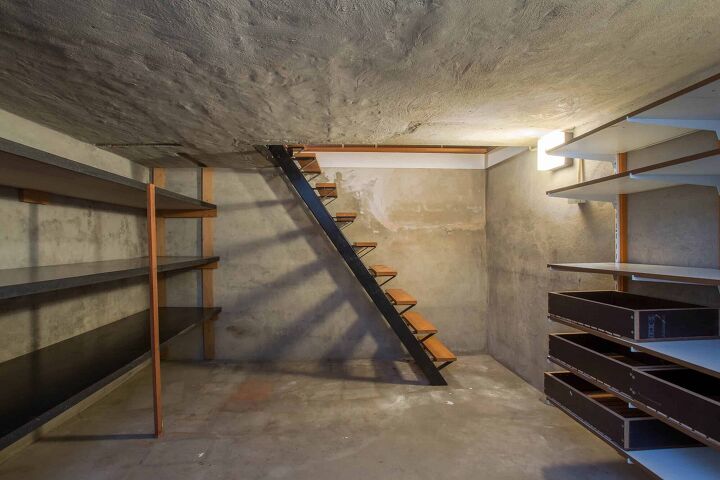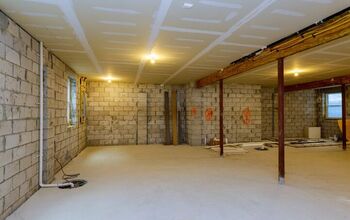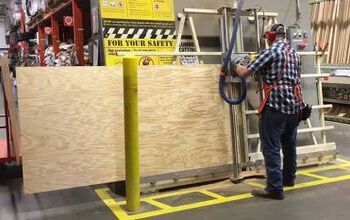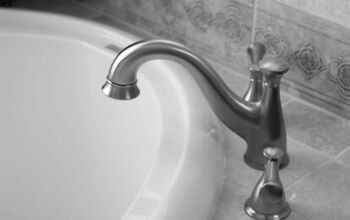Why Is There A Septic Smell In Your Basement?

No matter what you use your basement for, an unpleasant septic smell makes you want to stay as far away as possible. Whether your basement is for storage, a workshop, or a bonus room, it becomes virtually useless if it smells like sewage.
Your basement may have a septic smell if you have a large floor drain and it is dried out. Septic smells can also fill the basement if you have plumbing fixtures that aren’t properly vented. Inspect your toilet’s seal for weakening or leaks if there is one in the basement
Your first step to solving the problem is to figure out what’s causing it. The reasons range from simple to complex so, depending on the cause, you can possibly handle the smelly problem solo.
Do You Need a Septic Tank Cleaning or Pumping Service?
Get free, zero-commitment quotes from pro contractors near you.

Possible Reasons for a Septic Smell
There are several reasons your basement can smell like sewage. A few causes are easy to handle, but others are more difficult.
Here are the possible reasons for the septic smell in your basement:
Your Floor Drains Are Not Used Often
Floor drains are typically made with a trap that holds a small amount of water to seal the pipe. The trap looks like a sideways letter “P” and isn’t there just to ensure that water drains properly It also prevents hazardous sewer gas from escaping into your home.
If the drain is not used often, the water evaporates, the trap dries up and the seal opens. When the seal opens, it releases sewer gas into your basement.
Another possibility is the cleanout plug in the floor drain is old, worn, or simply missing. If the plug isn’t there, stinky gases have a straight route into your basement.
Faulty Toilet Seal
If your toilet seat wobbles when you sit on it, this is a strong indication that the wax seal between the toilet flange and the bottom of the toilet is faulty. This can occur if the toilet was installed improperly or the seal dries out.
Just like the seal in your P trap, a leaky seal in your toilet means that sewer gas can easily escape.
There Are Problems with the Ejector Pit and Pump
If your basement has an overhead sewer line, the ejector pit could be to blame. The pit needs to be sealed and vented to contain wastewater.
If the ejector pit is missing its lid or has a bad seal, sewer gas will flood into your basement. If the ejector pit is broken or stopped up, this can also let foul odors into your basement.
Improper Ventilation
If the appliances and other fixtures in your basement are not vented properly, this can lead to stinky smells. The improper ventilation doesn’t allow sewer gases to exit the basement effectively.
Also, if other areas of your home have poor ventilation, this can cause smells that trickle down into your basement. Some of the main culprits of poor ventilation in a home are the bathrooms and laundry room.
Blockage at Septic Tank
A clog in your sewer line can cause sewer gases to back up into your house. A failing drain field is a significant problem that can also cause blockages.
Damaged Sewer Line
Your basement’s septic smell can also result from a damaged sewer line. If your line has a break or crack, this results in a leak.
If this leak is near your home, the wastewater can soak into the ground and make its way into your basement’s sump pit. Hello, yucky smell!
How Do You Get Rid of a Septic Smell in Your Basement?
Once you know why you need a clothespin on your nose when you enter your basement, you can address it.
Here are the potential solutions for your basement’s septic smell:
Give New Life to Unused Floor Drains
If unused floor drains are to blame for the foul odors, grab some water! Pour about a gallon of clean water down the floor drain. This water should reseal the pipe and block the odor-causing sewer gas.
For extra protection from stinky smells, add a mild cleaner to the water for a pleasant scent. Also, remove the drain’s grate and check the cleanout plug. If the plug is missing or damaged, replace it.
Inspect and Replace the Ejector Pit
If your system has an ejector pit in your basement, examine it carefully. Ensure the pit is fitted with a good seal.
Check the waste discharge pipe for any breaks or clogs, and check the vent pipe. If any pieces are broken, clogged, or missing, replace them as needed to tackle the sewer smell. In this situation, you may need to enlist the help of a professional.
Improve Ventilation
Check all of the fixtures and appliances in your basement and ensure they are adequately vented. Also, check your bathrooms, laundry areas, and the rest of your home.
Make sure that all of the venting is tied together throughout your house. If your ventilation system is not working efficiently, contact a professional to help improve it.
Pump Your Septic Tank
If a clog or blockage is to blame, pumping your tank could help. If the drain field is to blame, this is a much bigger (and costlier) problem. Consult a professional if your drain field needs replacing.
Repair or Replace the Sewer Line
If the smell in your basement is due to a damaged sewer line, it’s best to call in the experts. This problem is not recommended to be tackled as a DIY project. A professional can diagnose the exact problem with your line and determine the most effective way to fix it.
Most pros run a leak-tracing dye through the bathtub or toilet to see if the dyed water reaches the soil. Once a leak is found, the pros will decipher what needs to be done to fix it. Hopefully, the line can be repaired, but it might need to be replaced entirely.
One of these issues and fixes is the most likely solution to your stinky problem. However, if none of these solutions seems to do the trick, you need to call a pro.
Here are some possible solutions for a damaged sewer line that your contractor will implement:
- Pipe bursting: In some cases, a sewer pipe has so much damage that it’s nearly impossible to line it. When this occurs, it is replaced using a minimally-invasive procedure known as “pipe bursting.” This requires little digging and can generally be completed in a matter of hours.
- Structural pipe lining: This solution involves your contractor creating a new pipe inside of your existing one using an epoxy-soaked liner. This felt liner is inserted into the pipe, expanded, and then left to cure. Once removed, the result is essentially a new pipe. Like pipe bursting, pipe lining can be done in just a few hours with little digging required.
- Brush coating or spray lining: With brush coating or spray lining, the interior of the pipe is sprayed with a polymer resin to cover any cracks or holes.
Related Questions
How much does it cost to repair or replace a sewer line?
The cost to repair a sewer line varies greatly depending on the extent of the damage. The price can be anywhere from about $50 to $450 a linear foot. Repairing or replacing your sewer line, on average, will likely cost between $1,100 and $4,100.If you have to replace your sewer line, expect to pay between $3,000 up to a whopping $25,000. A higher cost is likely if you need to replace the main sewer line, especially if much digging is involved. Of course, the exact price depends on numerous factors like accessibility, the types of materials, and cleanup costs. Shop around for different quotes before you get the job done.
Is it normal for your septic tank to give off odors?
A faint odor around your septic tank is typical, but a strong smell indicates something is amiss. There could be a chemical imbalance inside your tank, leaks, or other issues worthy of investigation.
Why is there a septic smell in the basement after it rains?
You might notice a strong sewer smell when it rains. This phenomenon is because rain makes the air denser and prevents methane gas from rising out of the septic tank. When the methane gas can’t exit through the tank’s vent, it produces a rotten-egg smell.
How much does it cost to replace a drain field?
If your drain field needs to be replaced, expect to pay about $7,000. It costs about $30 per linear foot to dig up the old field. You will then spend about $9 to $12 per linear foot to lay the new field.
Do You Need a Septic Tank Cleaning or Pumping Service?
Get free, zero-commitment quotes from pro contractors near you.

Wrapping Up
If your basement has an unpleasant septic smell, there could be many potential causes. It could be as simple as not using flood drains regularly, or as involved as a damaged sewer line. There could also be issues with the ejector pit and pump or poor ventilation in your home.
You can resolve many of these issues with a quick trip to the hardware store and a little elbow grease. However, if you have a damaged sewer line or failing drain field, it’s time to call in the professionals.
Once you diagnose the problem, you can fix it and banish the foul odors from your basement. Your basement will smell fresher, and you can start creating that man-cave (or she-den) that you always wanted!

Stacy Randall is a wife, mother, and freelance writer from NOLA that has always had a love for DIY projects, home organization, and making spaces beautiful. Together with her husband, she has been spending the last several years lovingly renovating her grandparent's former home, making it their own and learning a lot about life along the way.
More by Stacy Randall



























